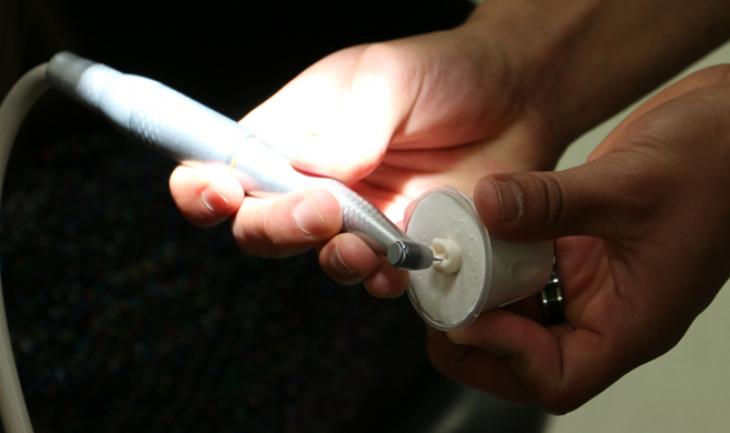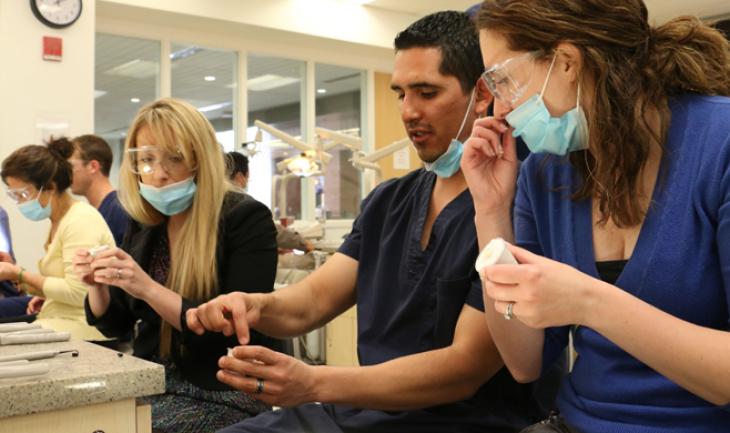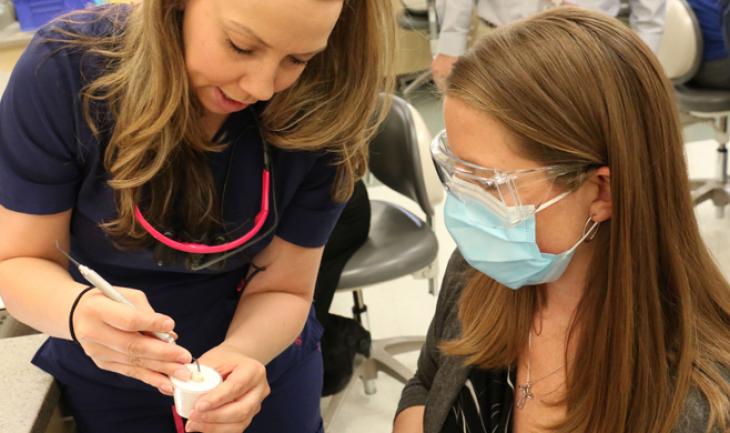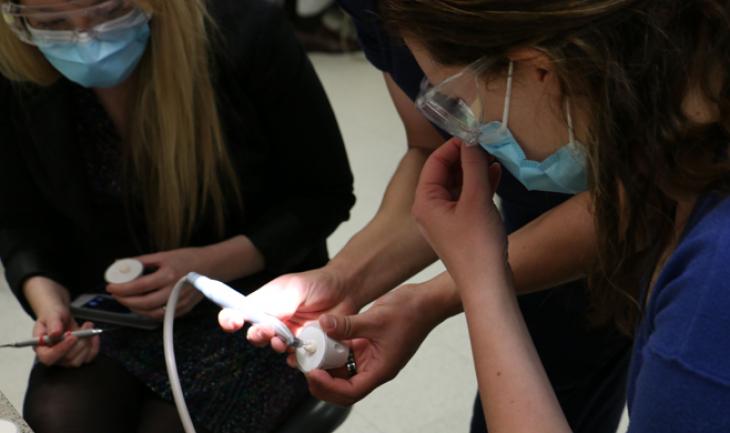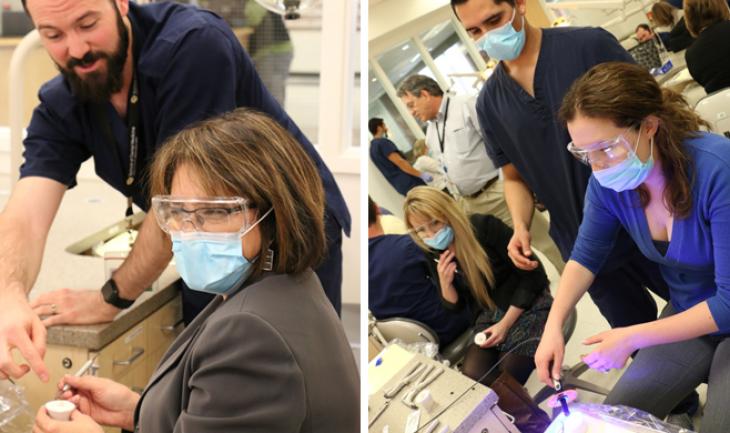CU drills home importance of preventive care, holistic approach
ALREADY ENROLLED?
Check your benefits confirmation
The day after you’ve enrolled, you can check your selections in the CU Resources tab of the employee portal.
Click on the Benefits and Wellness menu, and select Benefits Summary.
Enter the effective date “7/1/2016.”
Press Go. You will see the selections you made during Open Enrollment.
Laura Hall’s day job as a benefits counselor involves explaining the ins and outs of CU Health Plans to University of Colorado faculty and staff. Yet, here she finds herself, in a mask and protective goggles, dental drill in hand, about to bore a hole in a tooth.
Hall is taking part in a recent dental simulation clinic at CU Anschutz’s School of Dental Medicine. There, dental students guided benefits counselors as they drilled and filled cavities on plastic tooth molds. The reason? To improve your overall health.
“It’s wonderful to give them hands-on experience with dental procedures and show them why prevention is so important,” says Denise Kassebaum, dean of the School of Dental Medicine.
When the CU Health and Welfare Trust organized its annual benefits counselor training on CU Health Plan changes for the new plan year, it wanted to emphasize the ways its medical and dental plans are designed to work in tandem to improve health outcomes for CU faculty, staff and their families.
More than 164 million work hours are lost each year in the U.S. due to dental pain, Kassebaum noted in a presentation. Neglecting basic dental care is more expensive than preventive care and results in worse overall health. It is well-documented that oral inflammation and infections can worsen many other conditions and negatively affect the cardiovascular, endocrine, reproductive, respiratory, excretory and skeletal systems.
To help employees avoid these problems, CU’s three dental plans (two for employees, one for retirees) cover preventive services including two complimentary evaluations and cleanings along with X-rays each year.
The dental plans work in tandem with medical offerings to provide additional cleanings for health plan members who have documented gum conditions along with diabetes, pregnancy, cardiovascular disease, kidney failure or suppressed immune system due to chemotherapy, radiation treatment, HIV-positive status, organ transplant, stem cell and bone marrow transplants.
“If we take an integrated approach, you can expand your benefits across both spectrums and save money,” says Gena Trujillo, assistant vice president of CU Health Plan Administration. “Our goal is to design the health plans so they work together.”
In their approach to care, the Health and Welfare Trust and School of Dental Medicine work toward the “triple aim” of improved health, lower costs and improved care. This means evidence-based clinical guidelines; disease management, risk identification and changes to care based on patient risks; and a focus on prevention and improving dental health.
“You can’t get to personalized care without thinking about actual people,” Kassebaum says. “It’s about empowering patients to know their numbers. What do they know about their own periodontal health?”
CU employees may make changes to their benefits before Open Enrollment ends at 5 p.m. Friday If you’re ready to enroll, get started here.
Benefits counselors are available to answer questions about plans by calling 303-860-4200, option 3.
“The simulation really put in perspective how important preventive care is, how even one tooth can go through several stages of drilling more and more cavities,” Hall says. “It made me want to floss immediately!”
If you think you might find yourself in the dentist’s chair this year, CU’s benefits counselors will be happy to answer questions about what’s covered – no drilling involved.


